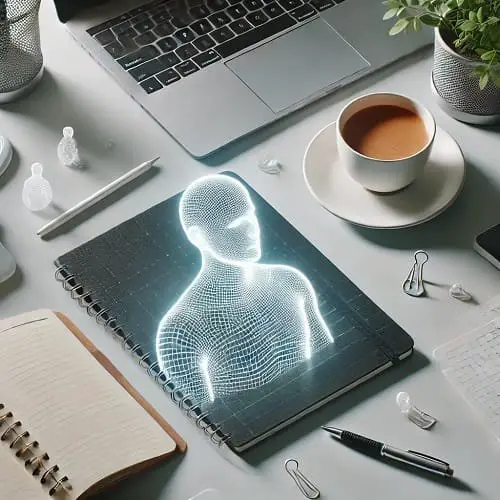Introduction
If you’ve struggled with anxiety, it can be hard to imagine what life feels like without it. But recognizing the signs you are recovering from anxiety is essential to knowing that progress is real. Recovery isn’t always a straight line, but there are positive indicators that can give you hope. By identifying these signs, you can celebrate each step on the path to healing.
Table of Contents
- Introduction
- 1. Increased Emotional Stability
- 2. Improved Sleep Patterns
- 3. Better Focus and Concentration
- 4. Less Physical Discomfort
- 5. Increased Social Engagement
- 6. Enhanced Self-Awareness and Coping Strategies
- 7. Reduced Catastrophic Thinking
- 8. Greater Enjoyment of Daily Activities
- 9. Stronger Sense of Self-Compassion
- 10. Feeling Empowered to Take On New Challenges
- Conclusion
- Frequently Asked Questions (FAQs)
- Q1: What are the main signs you are recovering from anxiety?
- Q2: How long does it typically take to see signs of recovery from anxiety?
- Q3: Can anxiety recovery be a lifelong process?
- Q4: How do self-awareness and coping strategies help with anxiety recovery?
- Q5: What role does physical health play in anxiety recovery?
- Q6: Is it normal to experience setbacks even when you’re seeing signs you are recovering from anxiety?
- Q7: Can lifestyle changes enhance the signs of anxiety recovery?
- Q8: Should I seek professional help if I’m not noticing signs of anxiety recovery?
In this article, we’ll explore ten encouraging signs of recovering from anxiety. Noticing these changes means you’re moving towards a more peaceful and fulfilling life, step by step.
1. Increased Emotional Stability

One of the early signs is improved emotional stability. As anxiety decreases, you may find yourself less prone to mood swings and better able to handle daily stressors.
Key Indicators:
- Reduced Mood Swings: Emotional balance is one of the signs you are recovering from anxiety.
- Greater Resilience: You can handle setbacks more calmly, showing that anxiety no longer controls your reactions.
- Positive Mental Health Changes: Your emotional stability is an encouraging sign that anxiety’s hold is weakening.
Emotional stability is one of the signs you are recovering from anxiety that lets you know you’re on the right path.
2. Improved Sleep Patterns

When anxiety takes over, sleep can become difficult. A more restful night’s sleep is a significant sign you’re on the mend. Better sleep patterns are one of the physical signs, signaling that your mind and body are finding peace.
Key Indicators:
- Longer, Uninterrupted Sleep: Experiencing deeper sleep is among the signs you are recovering from anxiety.
- Feeling Rested Upon Waking: Improved energy in the morning shows that your recovery is progressing.
- Reduced Nightmares: Peaceful sleep is another one of the physical signs you are recovering from anxiety.
When you see these signs you are recovering from anxiety in your sleep habits, you can be confident that healing is underway.
3. Better Focus and Concentration

Improved focus and concentration are strong signs you are recovering from anxiety. As your mental clarity returns, you can stay present and productive, without anxiety clouding your thoughts.
Key Indicators:
- Increased Productivity: Feeling more focused is a clear sign of improvement.
- Ability to Stay Present: Being in the moment without anxious thoughts is one of the signs you are recovering from anxiety.
- Reduced Intrusive Thoughts: Less frequent negative thoughts are one of the strongest signs you are recovering from anxiety.
If you notice these signs you are recovering from anxiety in your focus, you’re making meaningful progress.
4. Less Physical Discomfort

Physical relaxation is one of the most reassuring signs you are recovering from anxiety. As anxiety decreases, you may find relief from symptoms like muscle tension, headaches, and stomach issues.
ALSO READ
10 Alarming Signs Your Liver Needs Detoxing—And How to Take Action for Better Health
The Ultimate Guide to Using a Knee Pillow for Sleeping: Benefits, Tips, and Choosing the Right One
What is Metabolic Age? And How You Can Improve It?
Key Indicators:
- Less Muscle Tension: Feeling physically at ease is one of the comforting signs you are recovering from anxiety.
- Fewer Headaches: A decline in stress-related headaches signals recovery.
- Improved Digestion: Relief from stomach issues can also be a sign that anxiety is losing its grip.
Recognizing these physical signs you are recovering from anxiety can give you hope and encouragement.
5. Increased Social Engagement

When anxiety lessens, social activities can become enjoyable again. If you find yourself connecting more with others, this is a positive sign. Re-engaging socially is one of the emotional signs you are recovering from anxiety.
Key Indicators:
- Engaging in Conversations: Willingly spending time with others is a clear sign.
- Feeling More Comfortable: Feeling at ease in social settings is one of the positive signs you are recovering from anxiety.
- Building Stronger Relationships: Strengthening bonds with others reflects that anxiety no longer isolates you.
These signs you are recovering from anxiety in your social life are worth celebrating, as they demonstrate growing confidence.
6. Enhanced Self-Awareness and Coping Strategies

Another one of the empowering signs you are recovering from anxiety is increased self-awareness. Recognizing your triggers and having effective coping strategies is crucial to recovery.
Key Indicators:
- Knowing Your Triggers: Awareness of what causes your anxiety is one of the most crucial signs you are recovering from anxiety.
- Using Calming Techniques: Successfully managing stress is a strong indicator of progress.
- Effective Coping Strategies: The ability to handle stressful situations shows a healthier response to anxiety.
Self-awareness and effective coping are empowering signs you are recovering from anxiety that can help maintain long-term resilience.
7. Reduced Catastrophic Thinking

If you find that you’re thinking more rationally, it’s one of the major signs you are recovering from anxiety. When catastrophic thinking fades, you’re better able to approach situations with a balanced mindset.
Key Indicators:
- Rational Perspective: Less catastrophic thinking shows recovery.
- Reduced Hypothetical Worries: Not obsessing over worst-case scenarios is among the signs you are recovering from anxiety.
- Optimism About the Future: A positive outlook is a powerful indicator that anxiety is decreasing.
Recognizing these signs you are recovering from anxiety in your thoughts shows that you’re reclaiming your mental peace.
8. Greater Enjoyment of Daily Activities

Starting to enjoy daily activities again is one of the reassuring signs you are recovering from anxiety. When tasks feel less daunting, you know you’re on the right path.
Key Indicators:
- Increased Motivation: Finding joy in the little things is one of the signs you are recovering from anxiety.
- Feeling Accomplished: Satisfaction in daily tasks reflects growing well-being.
- Living in the Present: Enjoying each moment indicates progress.
These signs you are recovering from anxiety show that you’re moving towards a more fulfilling life.
9. Stronger Sense of Self-Compassion

Embracing self-compassion is a vital sign of progress. This is one of the emotional signs you are recovering from anxiety, as you’re kinder to yourself and more forgiving of your mistakes.
Key Indicators:
- Reduced Self-Criticism: Treating yourself with compassion is one of the signs you are recovering from anxiety.
- Positive Self-Talk: Replacing negativity with encouragement shows mental improvement.
- Patience with Progress: Understanding that recovery is gradual is an essential sign.
Self-compassion is one of the most heartening signs you are recovering from anxiety, reflecting a healthier mindset.
10. Feeling Empowered to Take On New Challenges

A willingness to take on new challenges is one of the most empowering signs you are recovering from anxiety. If you’re feeling brave enough to try new things, it’s a clear indicator of your progress.
Key Indicators:
- Increased Confidence: Trying new experiences with less fear shows recovery.
- Embracing Growth Opportunities: Feeling excited about challenges is one of the signs you are recovering from anxiety.
- Control Over Anxiety: Feeling that you can manage anxiety reflects empowerment.
Taking on new challenges is one of the most rewarding signs you are recovering from anxiety, as it shows you’re ready to live life fully.
Conclusion
These signs you are recovering from anxiety remind you that progress is possible. By recognizing improvements in your emotional, physical, and social well-being, you can appreciate how far you’ve come. Celebrate each sign as you notice it, and remember that healing is unique to everyone. Embrace each step forward with self-compassion and positivity, knowing that a more peaceful life is within reach.
Frequently Asked Questions (FAQs)
Q1: What are the main signs you are recovering from anxiety?
The primary signs you are recovering from anxiety include increased emotional stability, improved sleep patterns, better focus, and less physical discomfort. You may also experience reduced catastrophic thinking, greater social engagement, enhanced self-awareness, and a renewed enjoyment of daily activities. These signs reflect both emotional and physical progress on your journey.
Q2: How long does it typically take to see signs of recovery from anxiety?
The recovery timeline varies for everyone. Some people notice signs of improvement within a few weeks, while for others, it may take months or even years. Consistency with coping mechanisms, professional guidance, and personal circumstances all influence how quickly you might see signs you are recovering from anxiety.
Q3: Can anxiety recovery be a lifelong process?
Yes, for some, recovery can be a lifelong journey. While it’s possible to manage symptoms effectively, some people may continue to experience anxiety at times. The focus often shifts to identifying signs you are recovering from anxiety and learning to manage symptoms in a way that enhances quality of life over the long term.
Q4: How do self-awareness and coping strategies help with anxiety recovery?
Self-awareness and effective coping strategies are crucial. Being aware of your triggers and having techniques like mindfulness and deep breathing can significantly reduce symptoms. These tools help reinforce the signs you are recovering from anxiety by building resilience and confidence in managing anxious feelings.
Q5: What role does physical health play in anxiety recovery?
Physical health is deeply connected to anxiety. Improved physical health can often lead to a reduction in anxiety symptoms. Regular exercise, a balanced diet, and sufficient sleep contribute to fewer physical signs of anxiety and strengthen overall well-being, further supporting recovery.
Q6: Is it normal to experience setbacks even when you’re seeing signs you are recovering from anxiety?
Absolutely. Setbacks are a natural part of the recovery process. Even if you’re noticing positive signs you are recovering from anxiety, temporary increases in symptoms can happen. These moments offer an opportunity to practice resilience and reinforce coping mechanisms. Remember, setbacks do not erase progress.
Q7: Can lifestyle changes enhance the signs of anxiety recovery?
Yes, lifestyle changes like regular exercise, healthy eating, and mindfulness practices can greatly enhance your recovery. These changes help reinforce the signs you are recovering from anxiety by promoting a balanced and healthy mind-body connection, reducing stress, and building resilience.
Q8: Should I seek professional help if I’m not noticing signs of anxiety recovery?
If you’re not seeing any signs of improvement or if symptoms worsen, it’s advisable to seek professional help. Therapists and mental health professionals can offer tailored support, helping you develop personalized coping strategies that align with your unique needs.






